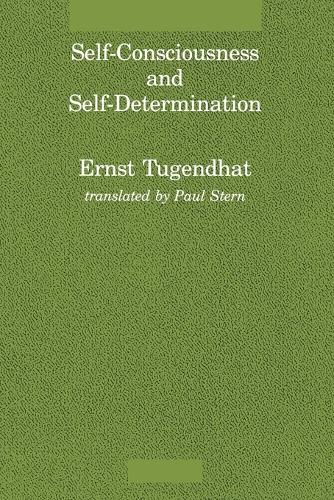
Self-Consciousness and Self-Determination
(Paperback)
Publishing Details
Self-Consciousness and Self-Determination
By (Author) Ernst Tugendhat
Translated by Paul Stern
MIT Press Ltd
MIT Press
7th September 1989
United States
Classifications
Tertiary Education
Non Fiction
126
Physical Properties
Paperback
368
Width 152mm, Height 229mm, Spine 20mm
567g
Description
A unique synthesis of the contemporary, Anglo-American philosophical approach with an abiding concern for classical philosophical problems.This book seeks to clarify the precise structure of self-consciousness and self-determination and elucidates their significance for our philosophical understanding of self-knowledge and human agency.The analysis challenges traditional models of theoretical self-knowledge and practical self-relation and elaborates an account of rationally grounded responsibility that jointly fulfills the demands of autonomy and authenticity.Tugendhat's study is a unique synthesis of the contemporary Anglo-American philosophical approach with an abiding concern for classical philosophical problems. It brings the methods of linguistic analysis to bear on such epistemological, moral, and metaphysical issues as the meaning and interconnections of self-knowledge, ego identity, rational self-understanding, and freedom of the will. In this context, the views of Wittgenstein, Heidegger, Mead, and Hegel are searchingly examined. The philosophical testimony of Kierkegaard, Freud, Habermas, and others is also presented and weighed. Self-Consciousness and Self-Determination is based on a series of lectures given at Heidelberg. The book is included in the series Studies in Contemporary German Social Thought, edited by Thomas McCarthy.
Reviews
"This is a marvelously rich book, which draws on a great range of sources to carry forward a single line, of argument... Tugendhat is an immensely stimulating thinker, with a limpid and engaging style of argument. His book offers an original and compelling remapping of an old terrain. This ought never to look the same again." Charles Taylor, Journal of Philosophy "This is a marvellously rich book, which draws on a great range of sources to carry forward a single line of argument... Tugendhat is an immensely stimulating thinker, with a limpid and engaging style of argument. His book offers an original and compelling remapping of an old terrain. This ought never to look the same again." Charles Taylor , The Journal of Philosophy
Author Bio
Ernst Tugendhat is Professor of Philosophy at the Freie Universitat in Berlin.
